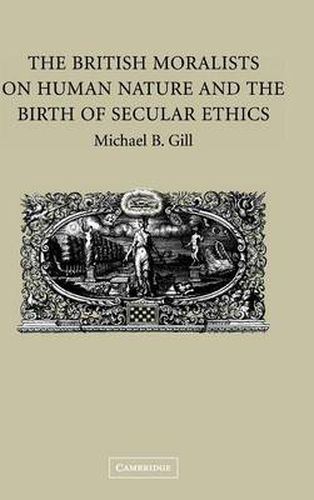Readings Newsletter
Become a Readings Member to make your shopping experience even easier.
Sign in or sign up for free!
You’re not far away from qualifying for FREE standard shipping within Australia
You’ve qualified for FREE standard shipping within Australia
The cart is loading…






Uncovering the historical roots of naturalistic, secular contemporary ethics, in this volume Michael Gill shows how the British moralists of the seventeenth and eighteenth centuries completed a Copernican revolution in moral philosophy. They effected a shift from thinking of morality as independent of human nature to thinking of it as part of human nature itself. He also shows how the British Moralists - sometimes inadvertently, sometimes by design - disengaged ethical thinking, first from distinctly Christian ideas and then from theistic commitments altogether. Examining in detail the arguments of Whichcote, Cudworth, Shaftesbury, and Hutcheson against Calvinist conceptions of original sin and egoistic conceptions of human motivation, Gill also demonstrates how Hume combined the ideas of earlier British moralists with his own insights to produce an account of morality and human nature that undermined some of his predecessors’ most deeply held philosophical goals.
$9.00 standard shipping within Australia
FREE standard shipping within Australia for orders over $100.00
Express & International shipping calculated at checkout
Uncovering the historical roots of naturalistic, secular contemporary ethics, in this volume Michael Gill shows how the British moralists of the seventeenth and eighteenth centuries completed a Copernican revolution in moral philosophy. They effected a shift from thinking of morality as independent of human nature to thinking of it as part of human nature itself. He also shows how the British Moralists - sometimes inadvertently, sometimes by design - disengaged ethical thinking, first from distinctly Christian ideas and then from theistic commitments altogether. Examining in detail the arguments of Whichcote, Cudworth, Shaftesbury, and Hutcheson against Calvinist conceptions of original sin and egoistic conceptions of human motivation, Gill also demonstrates how Hume combined the ideas of earlier British moralists with his own insights to produce an account of morality and human nature that undermined some of his predecessors’ most deeply held philosophical goals.